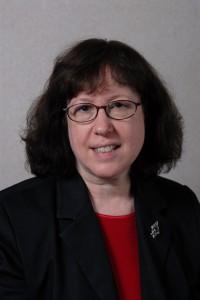Health issues affect many people as they age requiring them to move into assisted-care facilities where they are monitored by heath care professionals.
 Marjorie Skubic, a professor of electrical and computer engineering, has developed technology that lets health care providers remotely monitor changes in aging adults’ health.
Marjorie Skubic, a professor of electrical and computer engineering, has developed technology that lets health care providers remotely monitor changes in aging adults’ health.
Researchers from the University of Missouri have developed a variety of sensor technologies to monitor the health of aging adults from a remote location, thereby enabling them to retain their sense of freedom by continuing to stay in their own homes.
The research team consisting of Marjorie Skubic, a professor of electrical and computer engineering from the MU College of Engineering, and Marilyn Rantz, a Curator's Professor of Nursing from the MU Sinclair School of Nursing have been closely researching an eldercare facility called TigerPlace in Columbia. By using motion-sensing technology, they were able to monitor shifts in the health of the residents for many years.
The National Science Foundation has offered a grant to the researchers to carry on their work in another facility in Cedar Falls, Iowa. The White House Office of Science and Technology Policy has also extended its support. The research is also funded by US Ignite. Rantz stated that inclusion of another facility will help them conduct more tests on the possibilities of remote health care.
Fiber networking enabled the researchers to be able to monitor Columbia and Cedar Falls from Missouri. High-speed video conferencing capabilities were used as a means of communication between the two facilities. In-home sensors were installed to allow discreet monitoring of health conditions. These in-home monitoring systems are proactive and supply automated data to health care professionals in case medical help is required for an aging person, said Rantz.
Another type of sensor used the video gaming technology to assist in measuring residents' movements. To monitor the person’s pulse, restlessness and respiration, the facilities are provided with hydraulic bed sensors. The researchers believe that the sensors allow early detection of health issues in the aging person and enable early intervention.